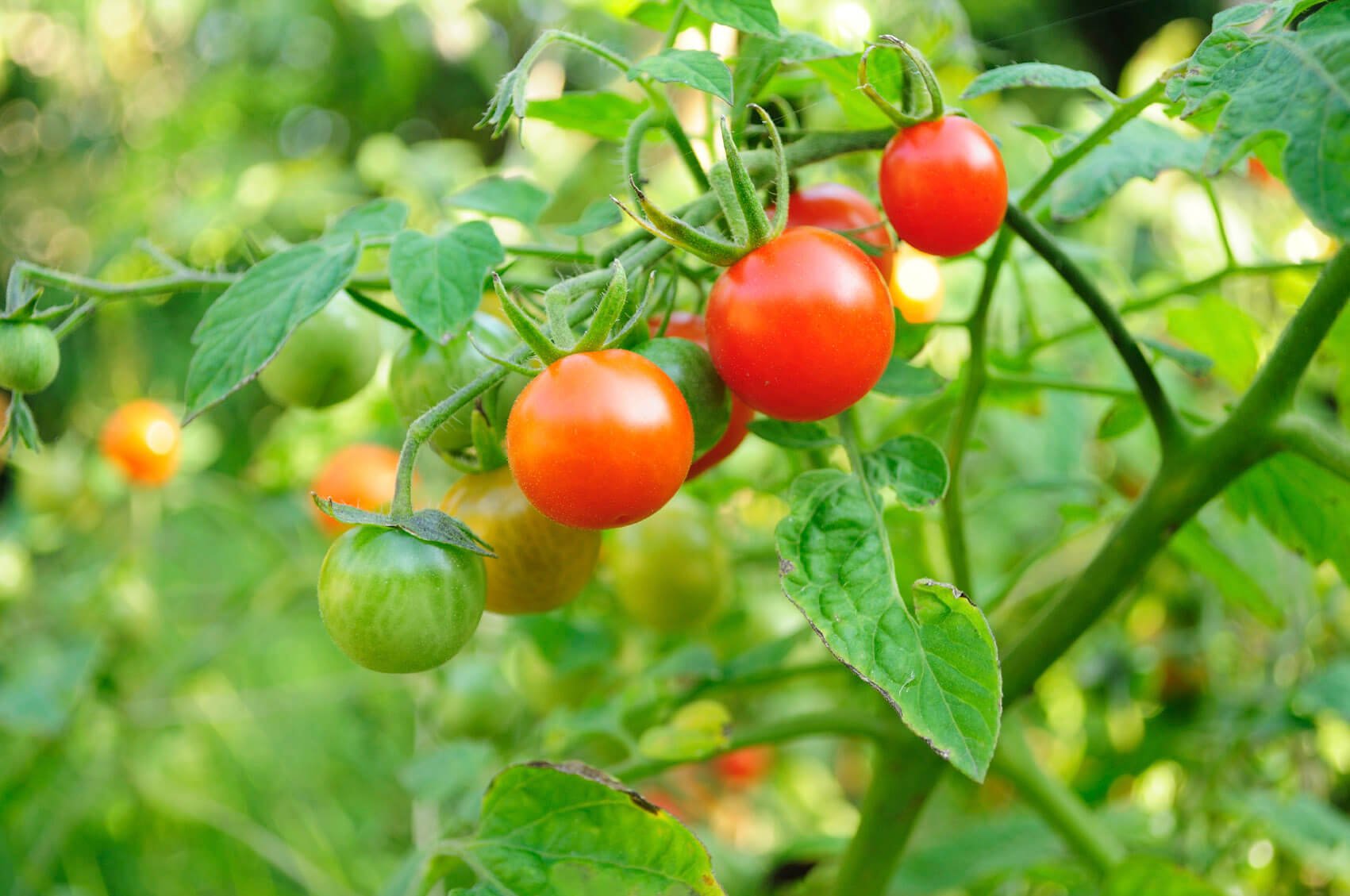Tomato Foes! Learn What to Avoid Near Your Tomatoes
Avoid These Plants Near Your Tomatoes
When choosing companion plants for your prized summer star, the mighty tomato, careful consideration can ensure a bountiful harvest. Some plants compete with tomatoes for soil nutrients, while other plants may attract pests and bring about the tomato’s demise. As you plan your garden plantings this season, avoid placing the following crops near your tomatoes, so that they may be as prolific and as healthy as possible.
Potatoes
Both tomatoes and potatoes are members of the nightshade family; thus, they are vulnerable to many of the same pests and diseases, including late blight and early blight. Potatoes and tomatoes are also heavy feeders, which means that they compete with each other for nutrients in the soil. It is best to grow these plants as far apart as possible, and always sterilize gardening tools in between specimens, so that you limit the spread of disease.
Corn
Corn and tomatoes are not good companions in the garden, as they are targeted by the same caterpillar species, known as the “corn earworm” on corn plants and the “tomato fruitworm” on tomatoes. Growing these plants together makes them an easy meal combo for this foe. Growing dill and yarrow near your corn may help naturally control the pest caterpillars.
Eggplant
Like potatoes, eggplants are members of the Nightshade family, which makes them susceptible to many of the same problems as tomatoes. Blight affects eggplants just as readily as it does tomatoes; nightshades planted closely together can increase blight spores spread much faster than if they were in separate sections of the garden. Eggplants also require lots of sunlight, so they won’t do well in the shade of their taller tomato cousins.
Ground Cherry
Ground cherry plants may not be as commonly grown in vegetable gardens as other Nightshade crops, but they are still worthy of our gardening space, because they are prolific producers of sweet fruity treats and require little maintenance in order to do so. As with other Nightshades, it is best to keep them separated, in order to minimize disease and pest pressure.
Large Brassicas
Tomatoes may can grow fine with smaller brassica plants like collard greens and radishes nearby, but gardeners should avoid planting tomatoes with larger cole crops. Brussels sprouts, cabbage, cauliflower, and broccoli are all very heavy feeders, so they will compete for nutrients and reduce the yield of neighboring tomato plants.
Rosemary
Rosemary and tomatoes have vastly different care requirements; growing them together can be tricky and headache-inducing. Rosemary thrives in dry soil and doesn’t need a lot of nutrients, whereas tomatoes need frequent watering and ample applications of fertilizer. If you want to grow tomatoes with herb plants, gardeners will find great success with basil.
Cucumbers
Tomatoes and cucumbers may tolerate companionship; their relationship may be complicated, however. Both of these plants are both heavy feeders, so regular feeding is required to support production. Additionally, vining cucumbers may cast too much shade on tomatoes and stunt their growth. If growing cucumbers and tomatoes together, gardeners should pay careful attention to spacing guidelines, in order to limit plant competition and reduce the spread of diseases like powdery mildew.
Fennel
Fennel is difficult to grow in vegetable gardens because it tends to not get along with many other plants. Fennel is an allelopathic crop, which means that it releases compounds into the soil that inhibit the growth of neighboring plants. Fennel would be best suited in a container or in an area with some isolation for its neighbors.
Sweet Potatoes
Sweet potatoes are not related to potatoes; they are still not good companion plants for tomatoes, however, due to their heavy feeding nature. Sweet potatoes compete with tomatoes for nutrients, causing the tomatoes to grow more slowly. Sweet potatoes can also spread diseases like fusarium wilt to neighboring tomato plants. The harvesting of sweet potatoes will also disturb tomato plant roots, which could lead to decreased health of the plant overall.
Walnuts
Like fennel, walnut trees are allelopathic, which limits competition from other plants, making them difficult garden companions. Nightshades, including tomatoes, are especially sensitive to the chemical released by walnuts, Juglone. If your walnut tree is near your garden area, nightshades should be grown in containers, and fallen walnuts should be removed from the garden before they have a chance to sprout!







